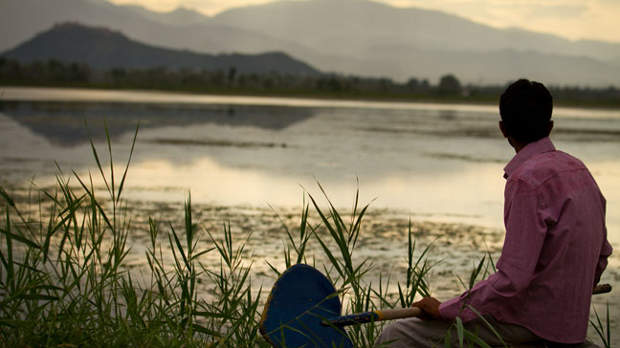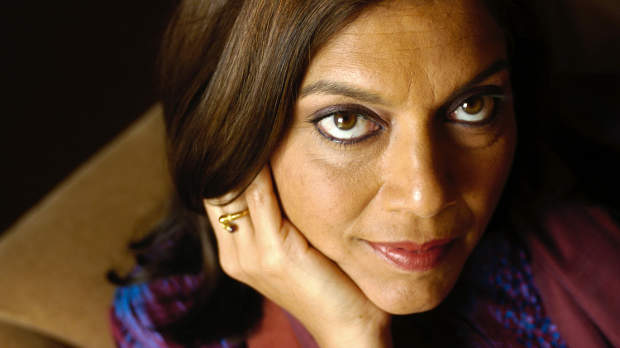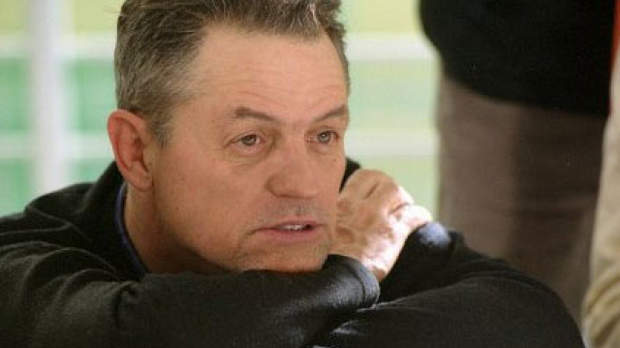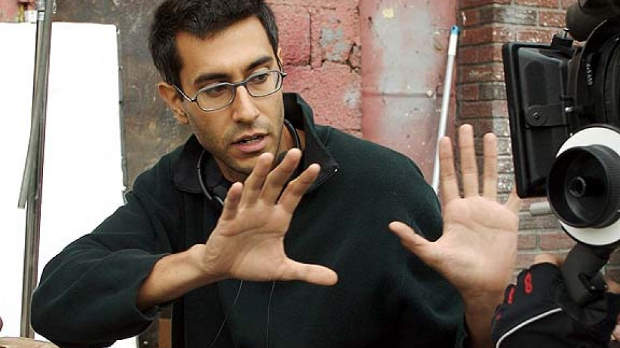 Back to selection
Back to selection
Transparency & Emerging Visions

An older filmmaker friend of mine recently told me about his first experience with Kickstarter. He hated it. It wasn’t that he didn’t get his money–his campaign was actually successful. No, It was something else. As he put it, it was “transparency.” He really didn’t like having to be so open about his needs, about the status of his project, about his desperation to raise money. Transparency can be uncomfortable for filmmakers–too much and you seem like you don’t know what you’re doing, too little and you don’t get the help you need.
I guess it’s about finding the right space to be transparent, and IFP’s Emerging Visions mentorship program provided just that. I was lucky enough to be chosen as a fellow this year, and it came at a great time for me. Eight months ago, my first feature Valley of Saints premiered at Sundance, picked up the audience award, and we’ve been going to festivals ever since (I’m actually in the Seoul airport right now, on my way to Busan). But the exposure also brought the challenges for the road ahead into sharper relief, so I was happy to talk to other filmmakers about how to proceed with my new narrative project, The Doctor.
IFP packed a lot into one day. First of all, they brought together a great group of 12 fellows, half of us selected by IFP and the other half by FSLC, and we all are working on first or second features. We were all at different places, we all had very different films, we all had different ideas about our careers. It was the just the right mix, so I think we all came away understanding ourselves in a new light.
The talks with veteran filmmakers were great in their intimacy and honesty. Mira Nair kicked things off, recounting her journey from political street theater actor in India to making her first films. Alongside her strengths as a director, it seems she always had producerial instincts, telling us how she personally sold Salaam Bombay! at Cannes, spending all night on her hotel phone, selling the film territory by territory until she pretty much covered the whole world. I’ve always admired (and want to emulate) her reputation as an actor’s director and her ability to effortlessly move between East and West, but learning more about her tenacity really inspired me–and it explains a lot about she shaped such a unique career.
Jonathan Demme spoke later in the day, and he similarly told us his “how I got started” story, transitioning from prospective veterinary student, to movie critic, to publicist, to producer, to director. While that was interesting, the even more compelling journey for me was hearing his transition from making bigger indies and studio movies to his much smaller movies of today. It’s great to see a director like him have the ability to adapt with the times and to change his cinematic language with it.
One of my favorite parts of Jonathan’s talk, and maybe of the whole day, was actually quite a mundane moment, but a very telling one. In the midst of a discussion of new distribution models, Scott Macaulay, who was moderating the talk, mentioned Netflix. This seemed to catch Jonathan’s attention, and he proceeded to ask Scott a series of questions about Netflix: “Is that the big thing these days?” “Can any of our films get on Netflix?” Their short aside almost became a private consultation between Jonathan and Scott. It might seem like an insignificant or awkward moment, but I found it incredibly endearing. Here was a veteran director being transparent and exposing his vulnerabilities in an effort to learn. It made me realize that, in a way, we are all emerging filmmakers now, learning, improvising, and innovating a new way of making movies.
Another awesome part of the day were the mentorship sessions. IFP paired me with Ramin Bahrani, and they couldn’t have known how much of a fan of his I am. For about an hour and a half, we had an amazingly frank and constructive conversation. I got a lot from him: story feedback on my new project, his thoughts on moving from working with non-actors to pro actors, an extensive “behind-the-scenes” of his films and career, a recounting of how even Kurosawa slit his wrists after not getting funding, his advice on navigating the festival world, and generally how to, as he put it, “not get extinct”.
It was interesting meeting him after following his career for so long. I referenced his movies quite a lot while making Valley of Saints, and I tried to implement a lot of the choices he made in his films. Through making my own movie however, I realized how different my approach and choices are. Having the opportunity to sit down face to face gave me a strange sense of closure, making me more fully believe that there are stories that are uniquely mine to tell, through my own distinct voice.
It was an intense day, but everything about it gave me momentum for the journey ahead, from being introduced to a new group of supportive peers to getting quality time with some of my heroes. In a lot of ways, it reminded me what I love about working in film: there is always room to grow. And that’s especially true when you’re transparent about where you are now.



